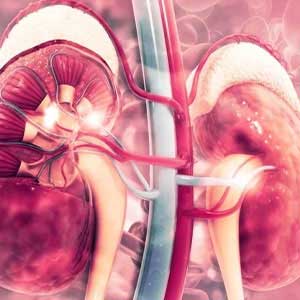Acute Kidney Disease Treatment in Anantapur
Acute kidney failure refers to the sudden cessation of kidney function. Medical professionals may also refer to this condition as acute renal failure needing Acute Kidney Disease Treatment in Anantapur. It can develop within a matter of hours or days. Fortunately, acute kidney failure is not always irreversible. With prompt medical intervention and in the absence of other significant health issues, it is possible for kidney function to return to normal.
Acute kidney failure vs. chronic kidney failure
Acute kidney failure occurs abruptly, whereas a gradual decline in kidney function over an extended period is referred to as chronic kidney disease. The presence or absence of specific symptoms will assist your physician in identifying the type of kidney failure you may be experiencing.
As per Kidney disease specialist in Anantapur, Acute kidney failure is characterized by a rapid deterioration in kidney function, which may be reversible. In contrast, symptoms of chronic kidney failure often do not manifest until a significant portion of kidney function has been lost, and this condition is typically irreversible.

An ultrasound examination by Nephrology specialist doctor in Anantapur can help distinguish between acute and chronic kidney failure. While kidney size may appear normal in ultrasounds for both conditions, a reduction in the size of both kidneys generally indicates chronic kidney failure.
Acute Kidney Failure Stages
The progression of kidney disease is assessed at Best Kidney disease hospital in Anantapur through the estimated glomerular filtration rate (eGFR), which evaluates the kidneys' filtering capacity. An eGFR nearing 100 is regarded as normal, while a rate of zero indicates complete loss of kidney function. The GFR reflects the percentage of kidney functionality. The stages of kidney disease are categorized as follows:
- Stage I: GFR of 90 or above (up to 100). Kidney function remains normal, although there may be slight damage present.
- Stage II: GFR ranging from 89 to 60. There is a mild reduction in kidney function, but the kidneys continue to operate effectively.
- Stage IIIa: GFR between 59 and 45. The reduction in kidney function can be classified as mild to moderate.
- Stage IIIb: GFR from 44 to 30. The loss of kidney function is considered moderate to severe.
- Stage IV: GFR ranging from 29 to 15. There is a significant loss of kidney function.
- Stage V: GFR below 15. Kidney function is nearing complete failure or has already reached that stage.
The primary function of the kidneys is to filter waste products from the bloodstream, including excess fluid that is converted into urine, and to regulate blood pressure. Additionally, the kidneys play a crucial role in the production of red blood cells. They are responsible for maintaining electrolyte balance, which is a type of nutrient, and for activating vitamin D. When the kidneys are compromised, their ability to perform these functions diminishes, which may occur as a result of underlying health issues, such as diabetes. Consult Dr. M. Surendra Babu for more information.
